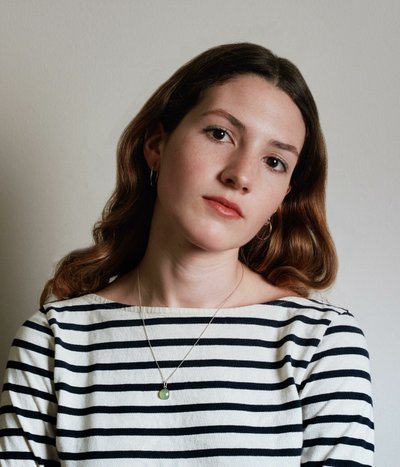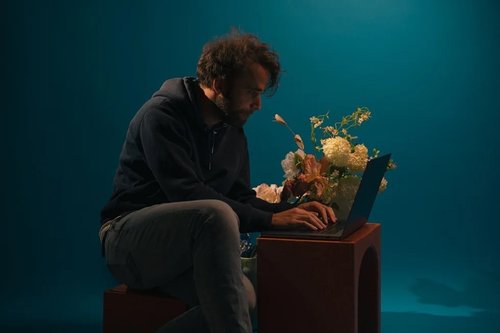Is work the right getaway from private problems?
Feb 03, 2021
5 mins


Writer
“For me, it definitely helps to be busy. Some people say you shouldn’t distract yourself, that you should think about everything and be really aware of what’s happening. But I wouldn’t want to dwell on feelings all the time. It’s not realistic.”
When Rosanna Corfe lost her father to cancer in 2019 she threw herself into setting up a new textile business as a way to deal with her grief. Her work proved a source of comfort that helped her to get through an extremely tough time.
Many of us are using work in a similar way as we live through a pandemic that comes with lockdowns, the loss of loved ones, and social isolation. Work gives us an opportunity to put our problems and worries aside and focus on something else. But is this a bad thing? When does seeking solace in work become dangerous? And how do we find the right balance?
Work as a distraction
When we encounter problems in our personal lives or go through trauma, staying busy is often the only way to keep our minds clear of negative thoughts. This was the case for Corfe, a designer based in Hampshire. Her initial plan after her father’s passing in 2019 was to go traveling, but before she could put it into action, the pandemic hit. Corfe decided to go ahead and quit her job as a consultant anyway and start her own textile project. “That was my way of grieving anyway: it’s something that was almost too painful to constantly think about. It was good for me to be busy, and work was a positive way of doing that,” she said.
Corfe found expressing her creativity especially helpful in dealing with her grief. “Over time I suppose it gets easier and you adjust more, but putting my energy into something creative definitely helped me deal with it.”
Overcoming loss also led to a new career path for Zoe May, whose best friend died when they were both in their early twenties. “It’s still raw even though it’s 10 years later, but it was very sudden. One minute she was fine and then the next she was gone,” she said. “We’d been best friends since we were six, so pretty much all of my memories involved her. It was just a big, big loss for me,” she said.
At the time, May was working as a local newspaper journalist, and in her spare time she started reading chick lit, which provided a sense of comfort. “Maybe it sounds a bit strange, but I just found that the first person narration of these books, and the way that they’re written in a sort of conversational, matey tone, was exactly what I needed. It was almost like a friend in book form,” she said.
Soon enough, she decided to pursue her lifelong dream of becoming an author and started writing her own novels. In 2018 she landed a book deal with HarperCollins and has since had six books published.
A way to find a purpose
While work is great for keeping the mind busy, it also brings a sense of purpose. When we talk about work-life balance, we often think in terms of conflict—where work and personal commitments fight for space in our lives—but there’s another perspective. “It’s also worth thinking about positive spillover between domains,” said Dr. Alexandra Beauregard, a professor of organizational psychology at Birkbeck, University of London.
“Work-life enrichment takes place when resources or emotions from one domain can be transferred to the other. So if people taking refuge in their work find that they are experiencing new career success or learning new skills as a result, then the sense of achievement, confidence, competence, pride, and so on can have positive ramifications for their personal lives as well.”
For Corfe, pursuing her ambitions was a way of honoring her father, who she says was “the biggest supporter of her work”. Doing something that she knew he would have been proud of meant work had a positive effect on her life.
Meanwhile for Zoe, writing the type of novels that helped her so much after her friend died gave her a clear sense of purpose. Writing provided a distraction and a focus, and it also gave her the opportunity to help others feel better. “I used to be a bit snobby about them [chick lit books] and then when I was really at that low point they provided so much comfort. I realized that these novels are important, and occupy a valid place in the market,” she said. “I wanted to contribute to that. Now I get comments from readers saying how uplifted they feel after reading my books and it makes me really happy.”
Personal life? What personal life?
Even if you are enjoying your work, keep an eye out for red flags that you are putting in all hours to an unhealthy degree.
According to Dr. Beauregard, the main thing to be aware of is making sure personal relationships don’t suffer. “If you don’t have any friends left and if your family is always annoyed with you because you never show up to anything, then that is a warning flag, even if you are still enjoying yourself,” she said. “It’s not healthy to have no one left in your life who’s not related to the work you are doing.”
Find comfort in work… without overworking
“There is definitely a risk when you do a job that is your passion to end up overworking,” said May. “That’s definitely what I’ve done. Since 2018 I’ve written six novels. I’ve been working so hard and I do find that I am a workaholic and that I’m addicted to work.”
When you’ve finally found something you really enjoy doing, makes you feel good and, on top of that, helps you to overcome personal problems, it can be very hard to know when to stop, explains May. “I think having something that intense happen to you, it makes you realize that life is finite, so it definitely propelled me to achieve my goals more so than someone who hadn’t been through it,” she said.
“That’s maybe why I’ve been churning out books because sometimes I feel a bit anxious about not achieving things and not making the most of life. But there’s a flipside to that: if you end up working too much, you’re maybe not experiencing life to the fullest anyway.”
May says she wants to slow down, but it’s difficult because she has become accustomed to working in a certain rhythm. She tends to work at the weekend, and sometimes she writes so quickly that she can’t keep up with the promotions for her books.
If you want to work less but don’t know how, Dr. Beauregard recommends treating your free time in the same way as you treat your work time, with the same amount of respect. “Schedule personal commitments into your diary in the same way as you would some kind of important work task, and then give it the same respect,” she said. “So even if you feel compelled to continue working at the weekend, maybe circle Saturday afternoon as the time to have a long conversation on the phone with your sister and take a relaxing bath, and do something that is not related to your work.”
Be aware of how it makes you feel
Above all, the question isn’t so much about what is right or wrong. According to Dr. Beauregard, it’s about how the work you are doing makes you feel. “If you feel energized, if you feel excited about your work, if you feel like you want to talk to other people about your work, you’re probably doing fine,” she said. “If you are working nine hours a day but you are feeling stressed, tired and anxious and you are waking up in the middle of the night thinking about work… If you feel pressured and you’re not sure how you’re going to keep up with everything, then those are the warning signs.”
It’s not necessarily a case of work hours or intensity. Your personal experience is much more important. “If you work really long hours and throw yourself into work and you love it, and you are enjoying yourself and this is how you want to be spending your time… then there’s no real problem there. It’s very subjective,” she said.
Photo: Welcome to the Jungle
Follow Welcome to the Jungle on Facebook, LinkedIn, and Instagram, and subscribe to our newsletter to get our latest articles every day!

More inspiration: Work-life balance

Back to school: How to balance continuing education with work
Balancing work and school is manageable. Choose the right course, inform your boss and friends, build good habits and take breaks to avoid burnout.
Jul 31, 2024

Clash of cultures: Unpacking the RTO conundrum
RTO mandates are a troubling trend in the workplace. So, what do workers and employers really think of it?
Jul 23, 2024

The 4-day workweek: 50 things we couldn't do without it
What would you do with one extra off day per week?
Feb 19, 2024

Does working eight hours a day really make sense?
The eight-hour workday may seem like a staple of modern work, but is it really necessary?
Oct 11, 2023

How social media professionals cope in an always-on world
Social media use can lead to feelings of anxiety, depression, and loneliness. We asked social media managers how they deal with the internet
Oct 02, 2023
The newsletter that does the job
Want to keep up with the latest articles? Twice a week you can receive stories, jobs, and tips in your inbox.

Looking for your next job?
Over 200,000 people have found a job with Welcome to the Jungle.
Explore jobs